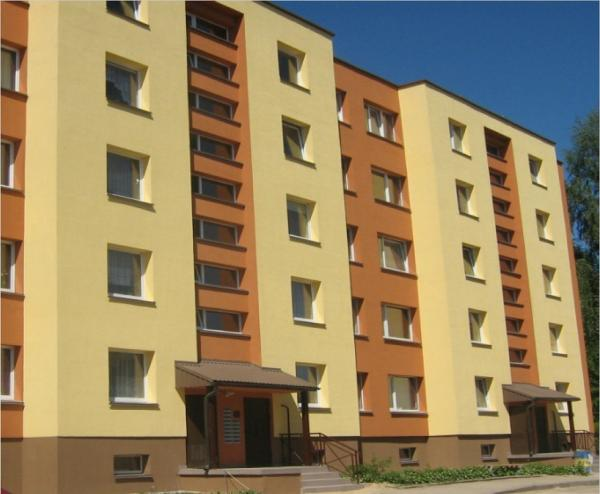
The European Investment Bank (EIB) is lending EUR 125 million to finance the energy efficiency refurbishments of 365 multi-storey residential buildings in the Sector 1 Municipality of the Romanian capital, Bucharest.The reduction of atmospheric pollution, particularly CO2 emissions, through energy savings in the refurbished buildings, will help mitigate climate change.
The EIB loan will finance up to 75% of the programme’s investment cost covering thermal rehabilitation, including the thermal insulation of walls, windows, roofs and cellars of multi-family residential buildings with some 20 000 apartments. The additional funding to complete this multi-annual programme will be covered from the Municipality’s own funds. This refurbishment will be carried out until 2014. The promoter of this project is the Municipality of Sector 1 Bucharest and the final beneficiaries are the residents of Bucharest. Apart from increasing the quality of life of Bucharest residents through energy savings, the project will also help improve the image of the buildings under this programme. The project will help Romania to meet its commitments related to improving energy efficiency, particularly to reach the EU 2020 target. The project is expected to reduce the buildings’ energy consumption by around 50% and the total energy saved will amount to approximately 190 GWh per year once the programme is fully implemented.
This is the second EIB loan provided directly to a Sector Municipality in Bucharest. In December 2010 the Bank signed a finance contract of EUR 70 million with the Municipality of Sector 6 Bucharest to implement a similar thermal rehabilitation project and other similar projects are in the pipeline.
Background:
The EIB is the long-term lending bank of the European Union. Its main task is to contribute towards the integration, balanced development and economic and social cohesion of the EU Member States.
The EIB supports the EU energy and climate change policy. In 2010 the EIB financed projects in the energy sector with loans of EUR 18bn, of which EUR 2.2bn for energy efficiency.
Since 1990, EIB lending in Romania has reached approximately EUR 8.5 billion to finance investment projects covering all the country’s major economic sectors, ranging from basic infrastructure in the fields of transport, health, energy and the environment to manufacturing and services, including support for small and medium-sized enterprises via local financial institutions.
The EIB raises substantial volumes of funds on the capital markets, which it lends on favourable terms to projects furthering EU policy objectives. It is the largest supranational borrower and its consistent AAA rating is underpinned by firm shareholder support, a strong capital base, excellent asset quality, conservative risk management and a sound funding strategy.



